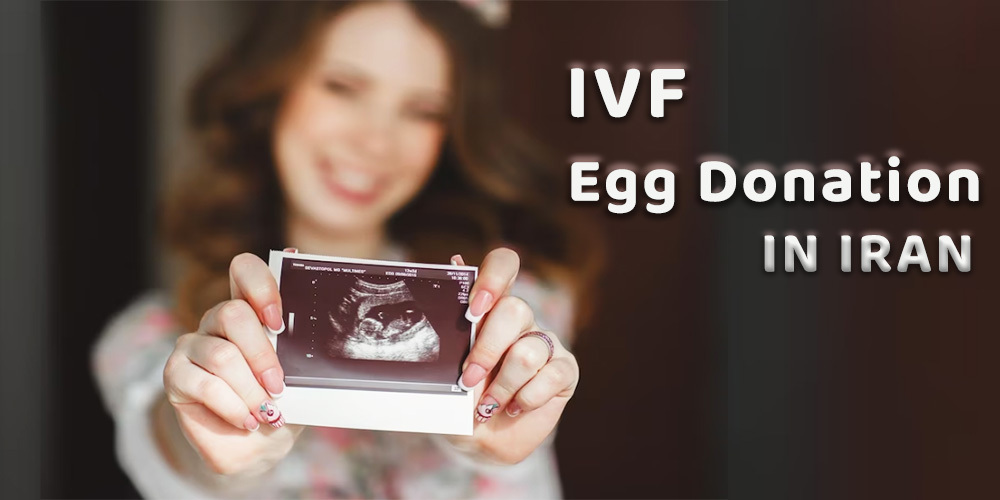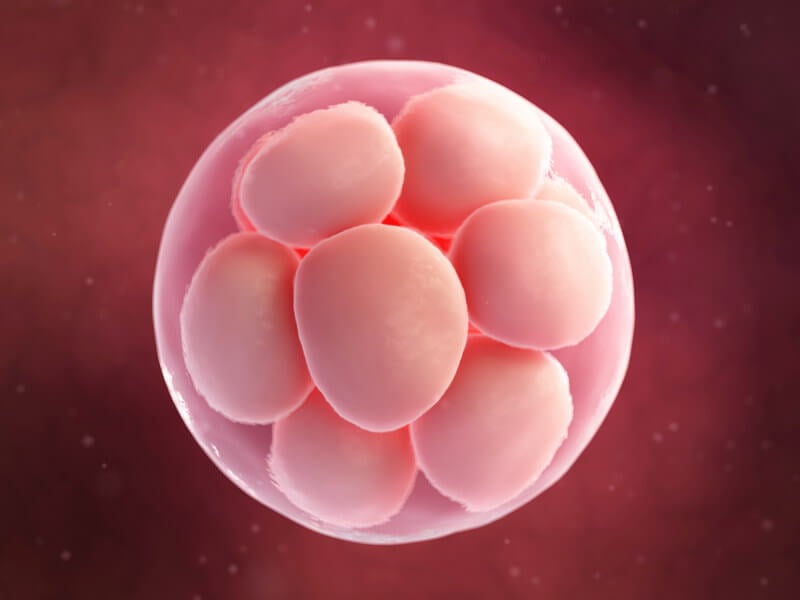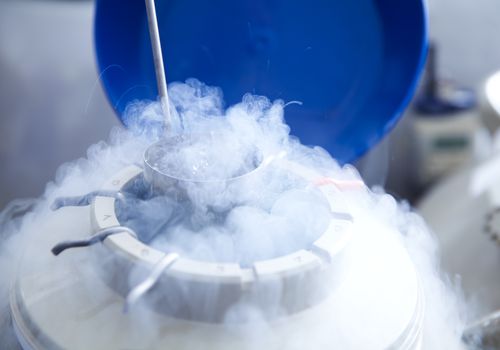Egg Donation in Iran 2023:
Egg donation in Iran is commonly used to help couples or individuals with infertility to conceive. In Iran, the egg donation process is legal and widely available. Iranian medical institutions offer various fertility treatments, including egg donation to help couples or individuals overcome infertility. Iran is the only Muslim country where egg donation is legally allowed. Therefore, in addition to the couples who come to this country from all around the world, many Muslim couples prefer to be treated in Iran where they can find Muslim donors. If you want to know more about
egg donation in Islam, you can read our article on this topic. In Iran, egg donation is a treatment service used by couples to solve infertility problems. The cost of egg donation in TebMedTourism is $6,000 and includes the cost of donated eggs, ultrasounds, blood tests for a couple, sperm analyses, medication, in vitro fertilization (IVF), and embryo transfer to the uterus. According to Iranian law, egg donation is only used as a treatment for couples whose infertility has been confirmed after marriage and medical treatment.
The History of IVF Egg donation in Iran
In vitro fertilization (IVF) using donated eggs has been practiced in Iran since the late 1990s. Iran was one of the early adopters of IVF technology, and by the early 2000s, the country had become a leading center for infertility treatments, including IVF egg donation. One of the reasons for the widespread use of egg donation in Iran is the high rate of genetic disorders and the elderly ages of intended parents which have led to a demand for healthy eggs from donors. The Iranian government regulates egg donation and requires that all donors be screened for genetic and infectious diseases. Additionally, donor anonymity is maintained to protect the privacy of all parties involved. Overall, IVF egg donation in Iran has been successful in helping many infertile couples become parents.
Is Egg Donation Allowed in Iran?
Yes, egg donation is allowed in Iran. Iran has a well-developed fertility industry, and egg donation is a common practice for infertile couples seeking to have children. Iran has strict regulations regarding egg donation, including criteria for donors and the use of donated eggs, and the process is only performed in authorized medical centers. In Iran, the egg donation process typically involves finding a suitable donor, who undergoes hormonal stimulation to produce multiple eggs that are then fertilized with sperm from the intended father or a sperm donor. The resulting embryos are then transferred to the uterus of the intended mother or a surrogate.
Who are Iranian Egg Donors?
In Iran, egg donation is legal and regulated by the Ministry of Health and Medical Education, and there is a well-established system for egg donation. Iranian egg donors typically undergo a thorough medical and psychological evaluation to ensure they are healthy and mentally prepared to donate their eggs. They often receive compensation for their time and effort. Iranian egg donation is often preferred by couples or individuals who are looking for a donor with similar ethnic and cultural backgrounds. This is because Iran has a diverse population with different ethnic groups, and Iranian egg donors are willing to share their cultural and religious backgrounds with the intended parents. Another important criteria of an Iranian egg donor is that they are Muslims, which is good news for Muslim intended parents. Iran is the only Muslim country where egg donation, sperm donation, surrogacy and other fertility services are legally practiced; therefore, Iranian egg donors are the best option for Muslim parents all around the world.
Egg Donation Success Rate in Iran
The egg donation success rate in Iran are high due to the availability of advanced medical technology, experienced medical professionals, and favorable conditions for egg retrieval and fertilization. The country has become a popular destination for infertility treatments, including egg donation, due to the high success rates and lower IVF egg donation cost in Iran compared to other countries. However, it is important to note that success rates may vary based on the individual medical history and the recipient’s condition including age, cause of infertility, and general health. It is recommended to consult with a fertility specialist to understand the success rates for specific cases.
Egg Donation Cost in Iran
The Egg Donation Cost in Iran can vary depending on various factors such as the clinic, location, and the type of egg donation procedure. On average, IVF Egg Donation Cost in Iran is estimated to be around $6,000. It is important to note that this cost does not cover other expenses such as medical exams, travel, and accommodation. Before undergoing the procedure, it is advisable to get a quote from the clinic and a comprehensive understanding of the process and all associated costs. Additionally, it is important to ensure that the clinic is reputable and follows ethical guidelines for egg donation. In Iran, egg donation is a well-established industry, with numerous clinics offering the procedure. The country has become a popular destination for couples seeking affordable and accessible fertility treatments, including egg donation. It is important to note that while the IVF Egg Donation Cost in Iran is lower compared to other countries, it is essential to thoroughly research and compare different clinics, their reputation, and success rates before proceeding with the procedure. It is also important to ensure that the egg donation procedure is carried out in a safe and ethical manner, with proper screening and testing of both the donor and recipient. Therefore, you have to proceed with this treatment through a well-known and expert healthcare facilitator like TebMedTourism who can lead you to the best clinics and treats you with the most experienced physicians in this field.






Comments & Questions